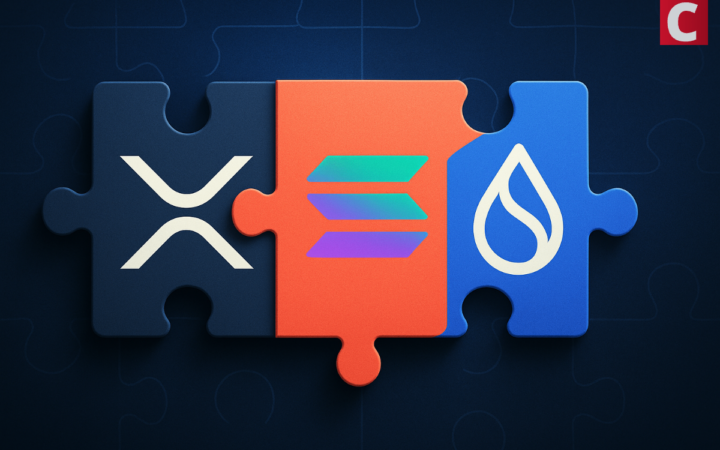
Populations around the world are aging. Today, about 962 million people are over 60 years old. People are living longer too. Japan has one of the world’s oldest populations where the average 60-year-old can expect to live another 26 years.
As we get older, issues are bound to arise. We encounter health concerns and our energy decreases. We wouldn’t be as sharp and as spry as we were in our younger years. These all bound to affect our ability to work and earn. This is why people are expected to retire come a certain age.
But if we can expect to be around for at least a couple more decades after turning sixty, that means we have to be able to sustain ourselves for many more years after retiring.
We all want a relaxed and comfortable retirement but that goal is going to be harder to achieve as our lives get longer. Traditional pension funds are becoming unstable and may not be able to sustain us for that long. In fact, this issue with pensions has become a global crisis. Pension infrastructures around the world are not equipped to deal with increased life expectancy.
Already, the cracks are starting to show. About 48% of people of retirement age don’t receive adequate pensions.
We need to address this issue before it gets out of control. The good news is that some startups are planning on doing just that. Blockchain-based startup Akropolis is focusing on the problem and is looking to improve pensions for everyone.
What’s Wrong with Pensions Today?
Before diving into what they’ll do to help things, let’s pick apart some of the main problems with pensions, and how they can be fixed.
The current pensions infrastructure lacks easy access. Some of us are lucky enough to rely on corporate pensions which are handled largely by employers. For others, like the self-employed and those who work for smaller companies, this luxury doesn’t exist. They’re forced to handle their own pensions.
Even if people do manage to set up a pension fund, the problems don’t end there. To make things worse, most also don’t understand finance enough to manage their money properly. Saving enough money to put into retirement is getting harder.
Conventional wisdom has it that the average person will need to put away around 10 to 15% of their earnings to end up with a decent retirement fund. Unless a worker earns enough to cover living expenses and service common debt like student loans and mortgages, that can be a real challenge.
It can be hard to trust pensions providers too. News stories about scandals involving companies and pension funds have become quite common. But even without these malicious actors, the pensions infrastructure has been looking quite shaky. The 20 biggest OECD countries already have a total $78 trillion shortfall in pension funding.
Akropolis CEO Anastasia O. Andrianova, summarizes these concerns quite succinctly:
“There are several reasons the world’s pension system is failing. One is that the world’s demographics are changing, with fewer young workers supporting more pensioners. Another is the system’s low mobility, with most pension plans being attached to a specific employer, career or place of residence. A third is a lack of transparency and control for pension plan beneficiaries.”
Understandably, people aren’t exactly brimming with confidence in the current system. Since building and managing a pension can be quite the headache, many simply choose not to get one. There are just too many barriers and complications involved.
We need to restructure our pensions infrastructures and give individual people more control while bringing accountability to pension funds. Blockchain technology could be the way to do that.
Using Blockchain to Manage Pensions
Blockchain technology has enabled the creation of decentralized and transparent systems. Through blockchain, pensions can have a system that’s secure and trustless so people no longer have to place blind faith in traditional mechanisms.
This is where a startup like Akropolis can shine to deliver a solution. They want to give their users the ability to manage pensions without wasteful, unreliable, and often corrupt third parties getting in the way.
Akropolis offers a gateway for users, funds, and fund managers to interact. Users can create their accounts on the platform and choose from a variety of pension products and funds that are fitting to their situation. Using blockchain’s transparency of records, users will be able to track the performance of their portfolios.
Funds and fund managers are also held accountable through a ranking and reputation system. This keeps them honest and obliges them to work only with the best intentions to ensure the sustainability of their funds.
Andrianova states:
“We are developing a blockchain protocol that helps solve these problems by creating a single, transparent global pensions system that increases pension plan mobility, reduces friction and incentivizes pension funds to act in consumers’ best interests.”
Such a system brings efficiency and gives more power to users, who now have a better view of how their money is managed. It allows people to be more involved and to take more responsibility for their own finances instead of traditional institutions who may not have their best interests at heart.
A blockchain-based approach is a new way of doing pensions. It could help encourage more people, especially the younger workers, to become active contributors to pension funds. Increased participation would only help make pensions solvent and sustainable. This kind of platform is crucial in our ageing world and could be the answer to many problems that desperately need to be solved.






